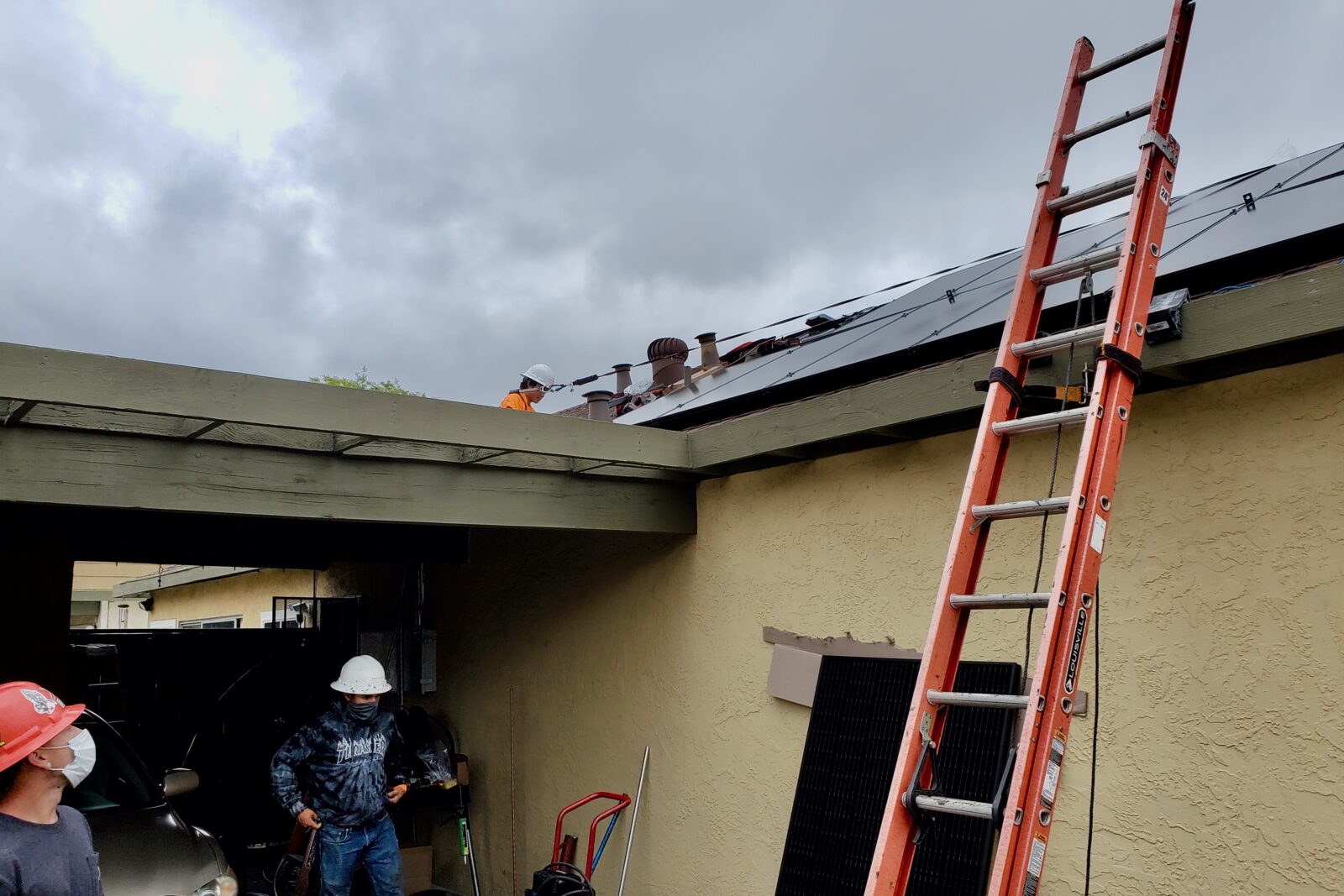This piece by the Los Angeles Times Editorial Board appeared in the Dec. 28, 2023, edition of the paper. It is shared here because of its ongoing interest and concern to our environmental advocacy community. It is not intended for republication.
It looks like California is going from solar leader to solar loser.
A year after regulators at the California Public Utilities Commission (CPUC) voted to gut the successful incentive program that has helped put more than 1.8 million solar systems on homes and businesses, the consequences are becoming distressingly clear.
Preliminary data from the rooftop solar industry shows a steep drop in installations and widespread job losses since April. That’s when the CPUC’s changes to the net energy metering program took effect, slashing the compensation new solar customers receive for the excess power they feed into the grid.
The commission sided with utilities, organized labor and consumer advocates who argued that incentives were so generous that solar customers “weren’t paying their fair share” to maintain the power grid, raising electricity rates for lower-income households and renters without solar arrays.
It’s not a surprise that eviscerating the financial incentives for consumers to invest in solar power would cause sales to plummet. But it’s still incredibly disappointing to see the outcome of state regulators’ wrecking-ball approach play out so predictably.
The analysis by the California Solar and Storage Association found that sales of rooftop systems in the state have dropped between 77 percent and 85 percent since April. That’s backed up by data from Southern California Edison and Pacific Gas and Electric showing that customers’ applications to connect their solar systems to the grid dropped between 66 percent and 83 percent in the months since incentives were reduced, compared with the same time period in 2022.
The industry group forecasts that 17,000 jobs — one-fifth of all solar jobs in California — could be lost by the end of 2023 as the reduction in incentives comes on top of high interest rates and inflation. That’s a steeper decline than the industry experienced in 2020 when the COVID-19 pandemic brought most solar installations to a halt.
Undermining the rooftop solar market is the opposite of what California should be doing to combat climate change. The world recorded its hottest year in 2023 and is experiencing worsening storms, heat waves and wildfires and other disasters. Yet, state regulators are doubling down.
Last month, the five-member panel of commissioners appointed by Gov. Gavin Newsom voted to slash solar incentives again, this time making it far less financially viable for apartment buildings, schools, strip malls, farms and small businesses to go solar. These decisions serve the interests of the state’s three big investor-owned utilities, who want to get solar electricity from large-scale arrays in the desert where it can be generated more cheaply. Organized labor also stands to benefit from the change. As the rooftop market falters, there will be more need for union-built solar projects to help the state meet its renewable energy goals.
The gutting of rooftop solar incentives isn’t hurting only the local regional companies that install residential systems. It’s also dragging down big, publicly traded companies like Enphase Energy that supply the equipment used in rooftop arrays.
Keeping solar financially viable and affordable for as many Californians as possible to generate renewable energy on their homes, apartments, businesses, schools and churches isn’t too much to ask. It’s an imperative for our planet.
Newsom and his PUC appointees should keep an eye on this alarming decline in solar jobs and installations and, if it continues, intervene. You can’t be a leader in the fight against climate change by crashing the solar market. It’s not too late to reverse course, reestablish strong consumer incentives for solar systems with battery storage and stem the damage to a cornerstone of California’s clean energy future.
Tommy’s note: To reiterate, Gov. Newsom’s CPUC appointees all voted to gut rooftop solar net metering rules at the behest of the special interests mentioned herein and investor-owned utilities (IOUs), which work like for-profit corporations and are publicly or privately owned by shareholders. Common IOUs include water and sewage companies, and electricity and natural gas companies like Sempra Energy and their affiliates San Diego Gas and Electric and Pacific Gas and Electric.
This piece originally appeared in the Dec. 28, 2023, edition of the Los Angeles Times.

